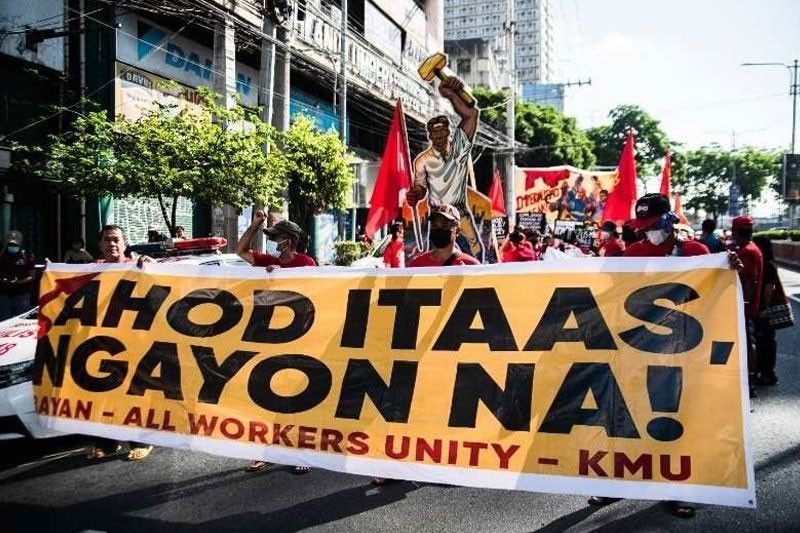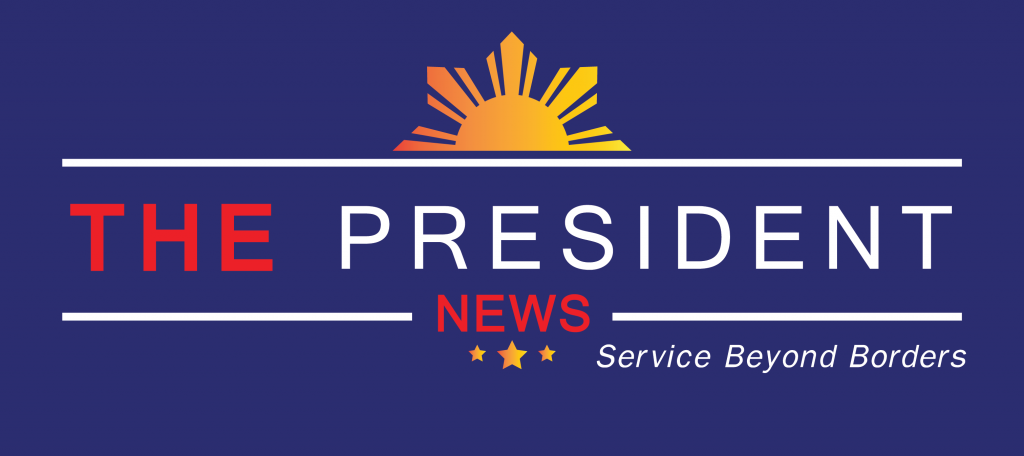
MANILA – Employers strongly criticized yesterday the recent push for a wage hike emerging from the House of Representatives, cautioning that any proposal advocating for a larger increase than the P100 approved by the Senate could result in more detrimental outcomes.
Sergio Ortiz-Luis Jr., the president of the Employers Confederation of the Philippines (Ecop), conveyed to the Inquirer that the ramifications of the House proposal, notably a bill proposing a P350 increment in the minimum daily wage for all private sector employees, would escalate the country’s inflation rate significantly.
“For the P100 wage increase from the Senate, we’ve already estimated that it will actually lead to a 2 [percentage point increase in] inflation,” Ortiz-Luis said in a phone interview, warning that the House measure would raise this by 7 percentage points or more.
“This P350 wage hike, this means goodbye to the Philippines for investors,” he added, citing that many investors who they have talked to have postponed expansion plans or ventures pending the resolution of this matter.
The Ecop official emphasized that a P350 wage hike would undoubtedly result in the closure of numerous micro, small, and medium enterprises (MSMEs), as many would struggle to manage the additional expenses associated with such a substantial increase.
“When these lawmakers downplay the impact of a wage hike and say that it will only lead to less profits for businesses, that is only true for large and, maybe, some of the medium companies,” Ortiz-Luis noted.
“For the micro enterprises, which are 90 percent [of the total economy], a wage hike this high is too much,” he said.
Ortiz-Luis also reiterated that any wage increase in the formal sector would only benefit approximately 16 percent of the country’s workforce, which amounts to around 50 million workers. This would leave the remaining 84 percent, or 42 million workers in the informal sector, grappling with the resulting consequences of higher consumer prices.
“They would be favoring the minority at the expense of the 84 percent. The collateral damage here will be the whole economy,” he pointed out.
Labor Code revision
On Sunday, House Majority Leader Manuel Jose Dalipe stated in a release that lawmakers in the lower chamber had reached an agreement that the Senate-approved P100 wage adjustment was inadequate to address the needs of workers.
During a press conference on Monday, Rizal Representative Juan Fidel Felipe Nograles, chair of the House committee on labor and employment, announced that his panel would be addressing measures utilizing two approaches to ensure higher take-home pay for the country’s minimum wage earners. These approaches include a legislated across-the-board wage increase and the establishment of a national minimum wage rate. This would involve amending a provision of the Labor Code of the Philippines to eliminate regional wage boards.
“When it comes to labor [issues], it should be tripartite. We have to listen not only to the workers, although it’s beneficial to them; we need to listen to its effect on the economy, to investors, employers and the Department of Labor and Employment,” he pointed out.
According to the lawmaker, there were three pending bills for a legislated across-the-board wage increase in his committee: P150 wage recovery under House Bill (HB) No. 7871 filed by Deputy Speaker Raymond Democrito Mendoza; P150 across-the-board wage hike under HB 514 by Cavite Rep. Ramon Revilla III; and P750 adjustment under HB 7568 filed by the Makabayan bloc.
Thorough study
Meanwhile, there are at least six bills aimed at establishing a national minimum wage rate by amending Articles 121 to 127 of Republic Act No. 6727, known as the Wage Rationalization Act. These bills seek to eliminate the authority of the regional wage boards to determine the minimum wage for each region.
The bills identified are House Bill Nos. 525, 111, 3308, 4898, 4471, and 1579, all proposing the creation of a national wage board to deliberate on potential wage increases.
Nograles assured the public that the committee would not rush the process and would consider input from all sectors. He emphasized that Speaker Martin Romualdez instructed a thorough examination of the proposed measures due to concerns that any minimum wage hike could lead to inflation and wage distortion among businesses.
The lawmaker noted that without careful scrutiny of the wage hike proposals, employers might pass on the increased costs to consumers, resort to layoffs, or even shut down operations.
Some senators appeared indifferent to the House’s push for a larger wage increase.
“If you ask me, P100 is really low. My proposal was originally P150, but of course, we also have to think of the employers as they might go bankrupt,” said Sen. Ramon Revilla Jr.
Senator Francis Tolentino emphasized the importance of consulting employers and companies regarding the proposals being discussed in Congress.
On the other hand, Senator Francis Escudero expressed his support for the House’s initiative, stating that it’s encouraging to witness progress not only for Filipino workers but also for both houses of Congress.
Senator Jinggoy Estrada, chair of the Senate committee on labor, stated, “I will support their bill if it proposes an increase greater than P100.”








